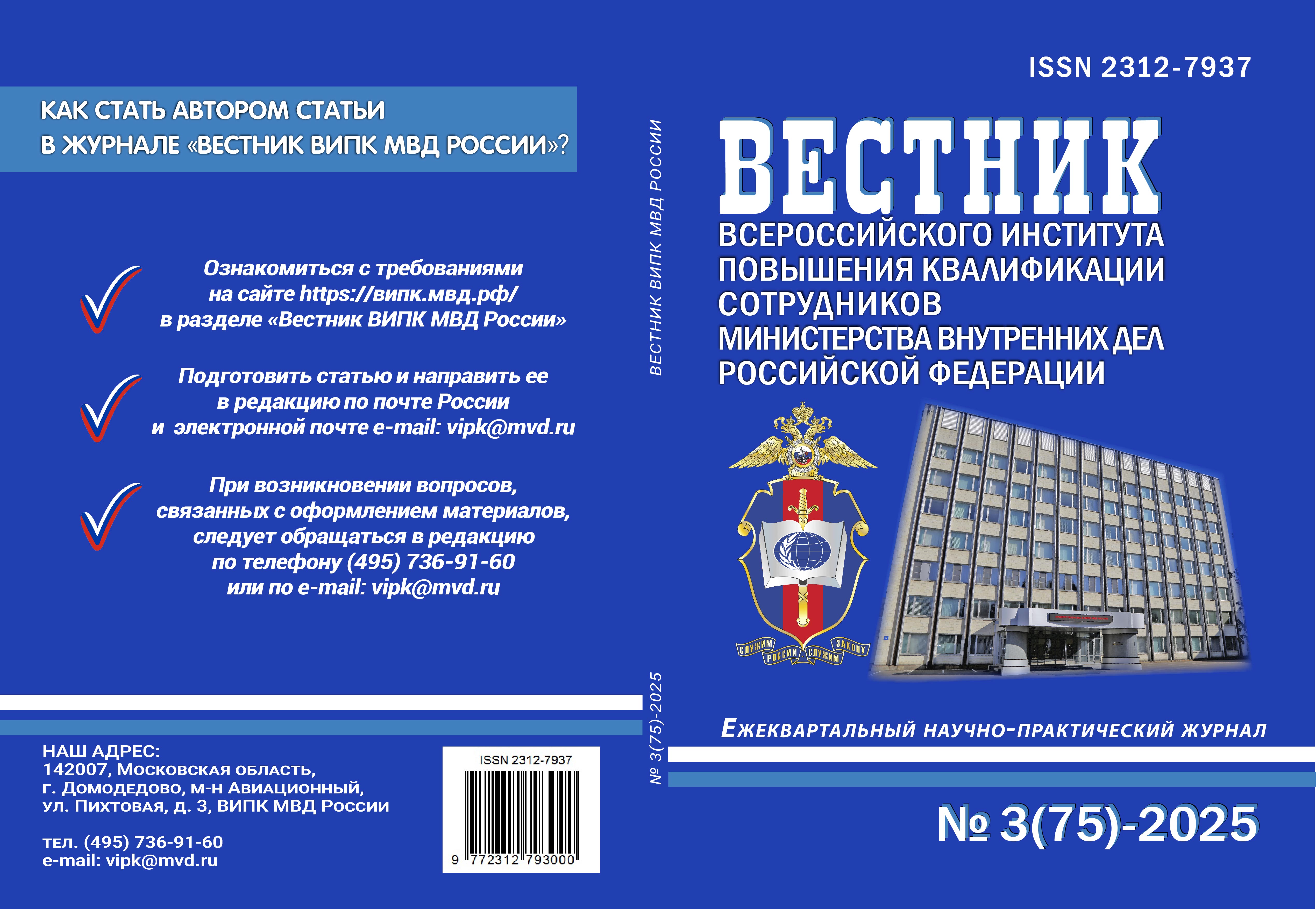Russian Federation
UDC 34
The article analyzes a key problem in the work of territorial internal affairs bodies: the lack of clear and uniform rules for the initial assessment of incoming messages. The main difficulty lies in determining whether a message contains signs of a crime, an administrative offense, or an incident, which directly affects the decision on where to register it – in a special journal for recording information about offenses and incidents, or in the general procedure as a citizen's request in office work. The lack of regulated evaluation criteria in the current instructions creates significant difficulties for field staff, leads to ambiguous and potentially erroneous decisions during the initial reception of information, especially when the message was received remotely and its nature cannot be objectively assessed without verification. An analysis of practice shows the need to separate reports into those that require an immediate police response, and those that do not require such urgency, but need to establish the fact of the event. To solve the problem, a differentiated registration system is proposed: messages requiring prompt action should be recorded directly in a special incident log with subsequent verification according to the procedures for violations; messages that do not require immediate response should initially be registered in the office under a special designation for verification as part of the general procedure for handling complaints. The introduction of such a system based on formalized criteria for assessing the urgency and nature of the message at the initial reception will improve the efficiency of the police, eliminate duplication of records, improve the reliability of statistical data, optimize the burden on units involved in investigations and inspections, and speed up the consideration of citizens appeals not related to offenses.
: territorial bodies, information, administrative offense, incident, registration









